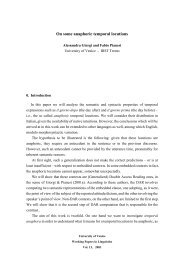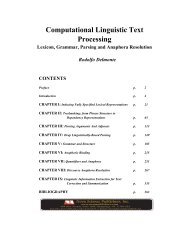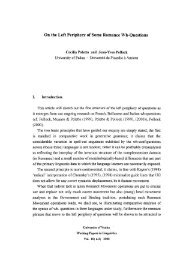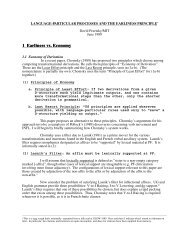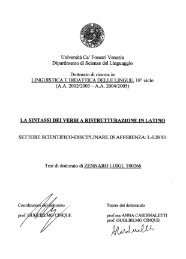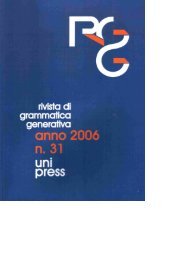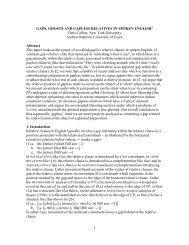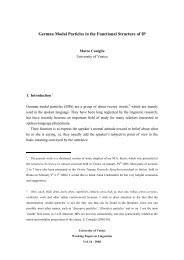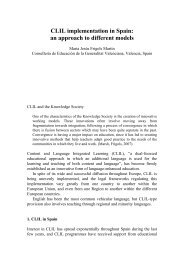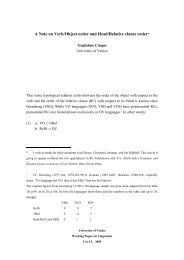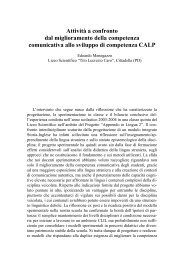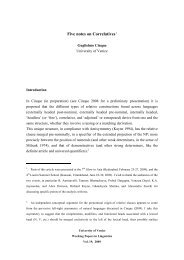A Grammar of Italian Sequence of Tense - Lear
A Grammar of Italian Sequence of Tense - Lear
A Grammar of Italian Sequence of Tense - Lear
Create successful ePaper yourself
Turn your PDF publications into a flip-book with our unique Google optimized e-Paper software.
138<br />
A <strong>Grammar</strong> <strong>of</strong> <strong>Italian</strong> <strong>Sequence</strong> <strong>of</strong> <strong>Tense</strong><br />
speaker appears. Hence, according to the hypothesis illustrated above, it selects a non-<br />
DAR subjunctive.<br />
4.3. The imperfect and the future-in-the-past<br />
As I briefly suggested above in section 2.2, the imperfect and the future-in-the-past are<br />
not relational verbal forms. The interesting fact is that they both appear in indicative<br />
contexts, hence, in contexts where in <strong>Italian</strong> normally the DAR is found. Let me<br />
consider the imperfect first.<br />
When embedded, the imperfect is simultaneous with the superordinate event:<br />
(60) Gianni mi ha detto che Maria mangiava un panino<br />
Gianni told me that Maria was eating(IMPF) a sandwich<br />
If a temporal topic is inserted, the imperfect event is then understood as simultaneous<br />
with it:<br />
(61) Gianni mi ha detto che ieri alle 5 Maria mangiava un panino<br />
Gianni told me that yesterday at five Maria was eating(IMPF) a sandwich<br />
In this case the event <strong>of</strong> eating might precede the saying and takes place exactly<br />
yesterday at five. Note however that if a temporal topic is not provided, either overtly in<br />
the sentence, or by the context, in <strong>Italian</strong> it is impossible to understand the eating as<br />
preceding the saying. 26<br />
Consider also that CD is impossible with the imperfect, showing that this verbal form<br />
actually patterns with the indicative and not with the subjunctive:<br />
(62) Gianni mi ha detto *(che) mangiava un panino<br />
Gianni told me (that) she was eating(IMPF) a sandwich<br />
(63) Gianni credeva (che) mangiasse un panino<br />
Gianni believed (that) she was eating(PAST SUBJ) a sandwich<br />
26 . In this the <strong>Italian</strong> imperfect differs from English, in that the past progressive was eating, even without<br />
any expressed temporal adverb, at least for some speakers, can refer to an event preceding the saying.



